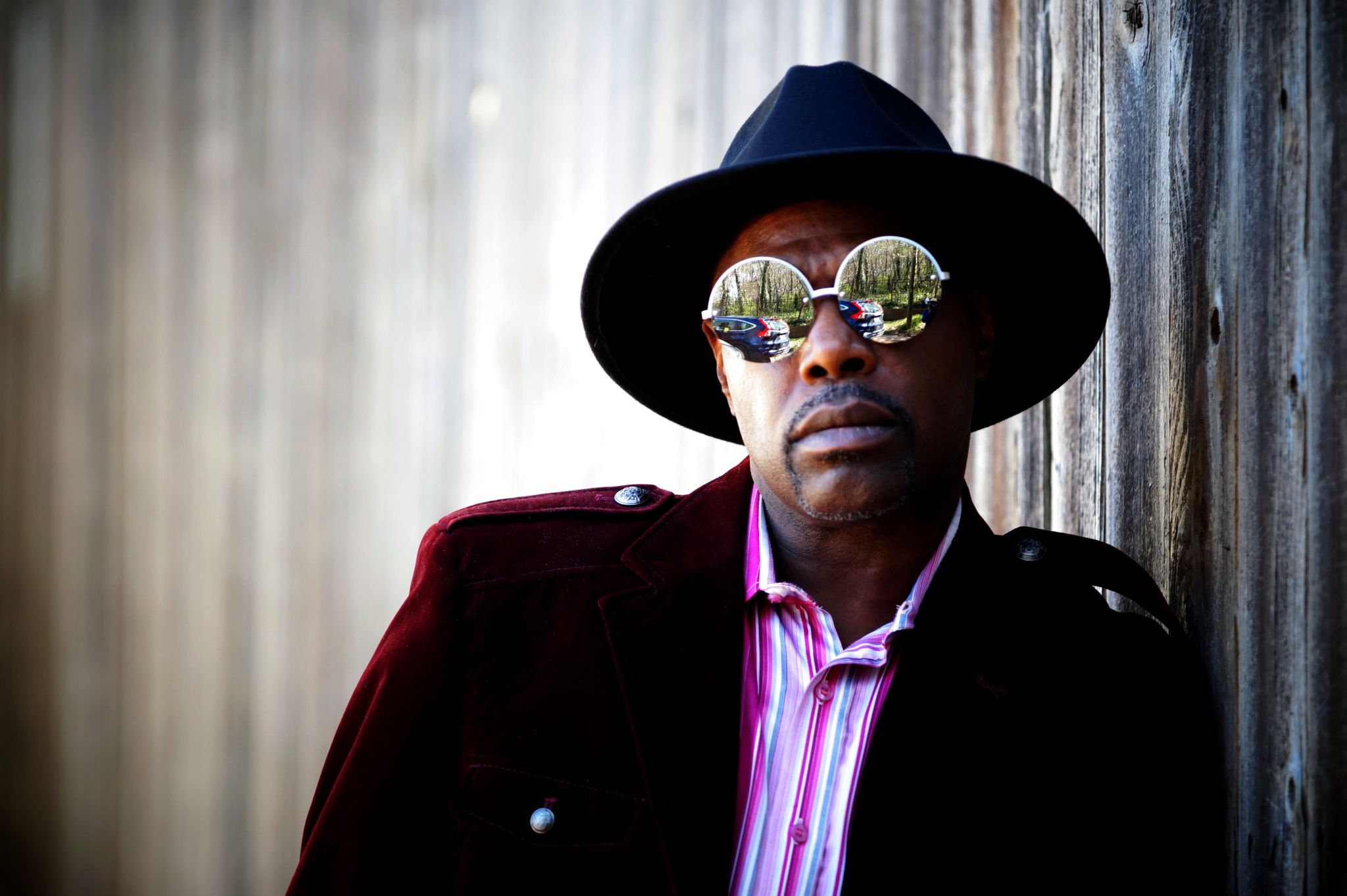“Ribbon in the Sky”
Guest Writer: Bishop Hartsel Clifton Shirley
Detroit is known for a few things: being the home of the big three auto manufacturers (Ford, GM, Chrysler); the birthplace of Motown, the record label that introduced beloved singers and groups such as Marvin Gaye, India Arie, the Supremes, the Commodores, and Boys II Men to the world. It was also the birthplace of Kenny Greene, who would burst onto the music scene, so full of talent—but leaving us like a song that had simply faded away.
Kenny Greene was born in Detroit, January 17, 1969. At 18, he enlisted in the army; during that stint, Greene became known for playing piano and singing in talent shows.
The military also was where he met fellow army comrade and singer Clinton “Buddy” Wike. The two began to work together to create music at an army base in South Carolina. It wasn’t long before they decided to form a group, adding another service member named Nelson to form a trio. The group’s name was INTRO —Innovative New Talent Reaching Out.
INTRO got the attention of DJ Eddie F of Heavy D & The Boys, who started to mentor the group. INTRO began laying down tracks for an album, but their military commitments made it difficult to concentrate on the project. Greene and Wike were granted a discharge from the army, but Nelson decided to continue his service. As a result, Wike enlisted his childhood friend, Jeff Sanders, who was a perfect fit.
INTRO scored a recording contract with Atlantic Records and released their first album, titled “INTRO.” The album was a massive success on the R&B charts. The first single, “Come Inside,” made the R&B Top Ten on the Billboard chart and crossed over to the pop charts, topping out at number 33.
The following two singles, “Let Me Be the One” and “Love Thang,” kept the group hot and made the Top 30 R&B while staying in heavy rotation. Greene’s standing in the music business was growing, and his musical arrangements evidenced jazz and soul influences and added New Jack Swing.

Greene helped create a new and sophisticated sound that drew fans and the praises of critics. He worked on Mary J. Blige’s debut album, “What’s the 411?” and Madonna’s “Bedtime Stories.” Along with Dave “Jam” Hall, Greene tied with Jimmy Jam and Terry Lewis in 1993 for ASCAP’s “Song of the Year.”
INTRO’s second album, “New Life,” contained a priceless rendition of Stevie Wonder’s “Ribbon in The Sky.” Wonder was so impressed with the arrangement and performance by the group that he even appeared in the video. The song would barely miss the R&B Top Ten.
The second album contained some of the New Jack era’s most luxurious harmonies, insightful lyrics, and plush backgrounds. INTRO also collaborated with Black Men United (including Tevin Campbell, Brian McKnight, Christopher Williams) on the song “U Will Know,” written by Neo-Soul newcomer D’Angelo. The song featured Lenny Kravitz on guitar, and the song was included in the movie and soundtrack for Jason’s Lyric. Greene stood out in the group–not only for his lead singing but also for being handsome.
Women and men became a “priority” to him after leaving the army. Unfortunately, the early 90s was also a time when AIDS was that “elephant in the room,” creating an environment for a seemingly unshakeable down-low mentality. It was these dynamics, among others, that kept Greene silent about his true sexual desires–as well as his health.
His appearance began to show signs of his HIV infection. At one point, he dyed his hair blond; however, the record company objected, and he went back to his natural color. Greene’s weight began dropping, and he often complained of having the flu. The band noticed, but he shrugged it off and continued the group’s grueling schedule. Plans for a third album were made but never materialized.
Shortly after the last single from “New Life,” the group disbanded to crack the Top 50 on the R&B charts. Greene kept working steadily, writing for other artists such as AZ, Cam’Ron, 98 Degrees, and Will Smith. His last performance was background vocals on “For Always,” part of Tyrese’s “2000 Watts” album.
In a 2001 interview with the defunct Sister2Sister magazine, Greene divulged that he was HIV positive and struggling with health difficulties. He also admitted to being bisexual and shared the pressures of society’s expectations of him to be an “alpha male” and heterosexual.
Some applauded his bravery, while others condemned and rejected him. None of his bandmates were previously aware of the performer’s actual sexual orientation.
Kenny Greene died in New York on October 1, 2001, from complications of advanced HIV disease. His family didn’t attend a wake arranged for him by friends. Kenny was honored by the army and was buried in Long Island at the Calverton National Cemetery.
This performer’s career and talent were stolen from the world, but the richness of his voice, his lush harmonies, and the profound lyrics he wrote prove that…
I invite you to listen to INTRO:
“Come Inside”
https://www.youtube.com/watch?v=nyN-67uyZfo
“Ribbon in the Sky”

Bishop Hartsel Clifton Shirley is an author, writer, singer/songwriter, and bishop from Waterloo, Iowa. He received his master’s degree in business from the International Business Management Institute based in Berlin, Germany.
Currently residing in Atlanta, Mr. Shirley is a bishop of National and International Social Action, part of New Direction Overcomers’ International Fellowship (based in Richmond, Virginia).
A multi-faceted talent, Hartsel is a writer, author, and singer/songwriter. A bronze prize winner of the International Society of Poets, he has penned editorials for the Waterloo/Cedar Falls Courier. His best-selling novel is entitled Three Words, Four Letters, published by Ishai Books. Additionally, Hartsel has charted at #1 several times on the ReverbNation pop music charts.
Inspired by Langston Hughes, Bishop Shirley states, “I write what moves me. There is nothing I can’t write. I just have to care about it so I can write truthfully.”
According to Hartsel, his current book, The Night Eddie Sallis Died, is based on factual information he uncovered in 2002 about a 1966 jail cell “suicide” in Waterloo, Iowa (his place of birth). This revealing and riveting book pulls back the curtain on racism and police brutality. The author emphasizes, “These truths make Iowa a state not to be taken lightly–nor forget.”



Great sing mr Green he should have been alive still to tell his story RIP you are always the star in the sky xx
I love your columns reminding us of forgotten hero’s. I will be checking out the music. Kudos to you.